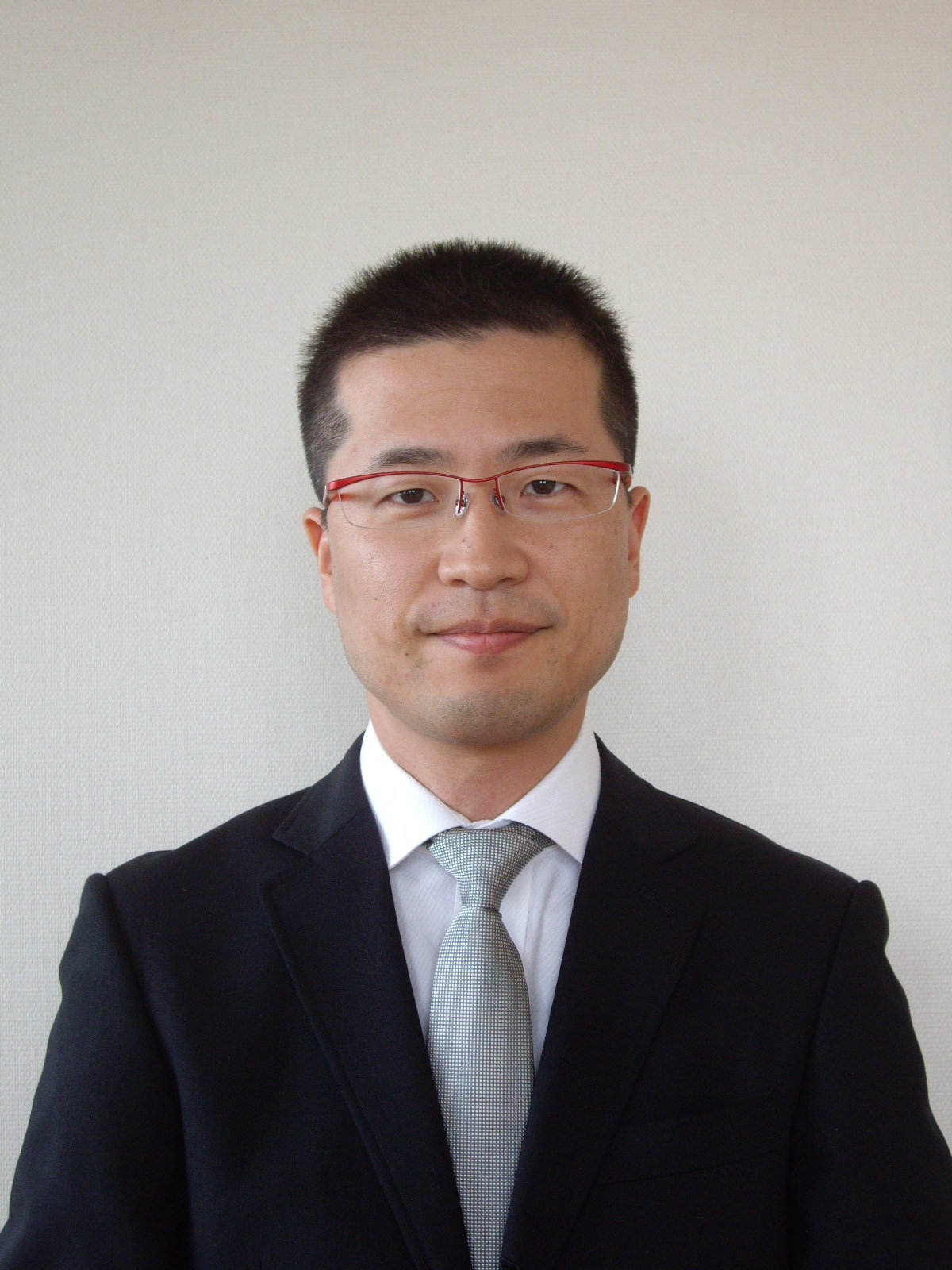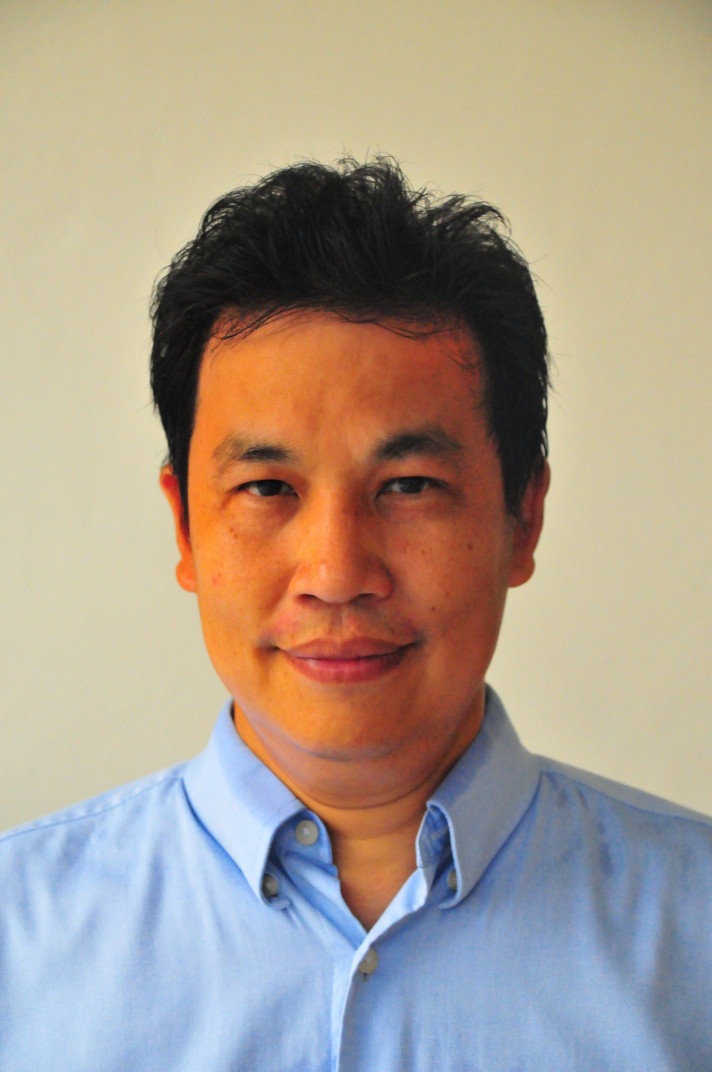Status Quo and Prospects for 5G Development in Korea
Prof. Dr. Een-Kee Hong
Professor, Kyung-Hee University, Yong-In, Republic of Korea
Abstract
South Korea has launched the world’s first 5G services on April 3, 2019 and the new network connected to the actual 5G phones. This talk introduces status quo and prospects for Korean 5G development and the main contents to be covered are as follows: (1) Motivation of driving world’s first 5G commercialization, (2) The changes in mobile traffics and services after launching 5G, (3) Network configuration and its evolutionary path of 5G. Finally, the problems that are now being faced in 5G deployment and the considered technical solutions will be discussed.
Biography
 Een-Kee Hong (IEEE M’99-SM’09) received the B.S., M.S., and Ph.D. degrees in electrical engineering from Yonsei University, Seoul, South Korea, in 1989, 1991, and 1995, respectively. He was a Senior Research Engineer with SK Telecom from 1995 to 1999 and a Visiting Senior Engineer with NTT DoCoMo from 1997 to 1998. From 2006 to 2007, he was a Visiting Professor with Oregon State University, Corvallis, OR, USA. He has been a Professor since 1999 and served as the Vice Dean with College of Electronics and Information Engineering, Kyung Hee University, Yongin, South Korea. His research interests include physical layer in wireless communication, spectrum engineering, and cross-layer optimization. He received the Best Paper Award, Institute of Information Technology Assessment, and the Haedong Best Paper Award, KICS. (Based on document published on 5 January 2017). Currently, he is a Vice President, Korea Institute of Communications and Information Sciences, the Chair of 5G Forum Spectrum Committee, the Chair of IEEE VTS Seoul Chapter, Spectrum Committee Member of Office for Government Policy Coordination and the chair of Ministry of Science & ICT 5G Spectrum Consultative Committee.
Een-Kee Hong (IEEE M’99-SM’09) received the B.S., M.S., and Ph.D. degrees in electrical engineering from Yonsei University, Seoul, South Korea, in 1989, 1991, and 1995, respectively. He was a Senior Research Engineer with SK Telecom from 1995 to 1999 and a Visiting Senior Engineer with NTT DoCoMo from 1997 to 1998. From 2006 to 2007, he was a Visiting Professor with Oregon State University, Corvallis, OR, USA. He has been a Professor since 1999 and served as the Vice Dean with College of Electronics and Information Engineering, Kyung Hee University, Yongin, South Korea. His research interests include physical layer in wireless communication, spectrum engineering, and cross-layer optimization. He received the Best Paper Award, Institute of Information Technology Assessment, and the Haedong Best Paper Award, KICS. (Based on document published on 5 January 2017). Currently, he is a Vice President, Korea Institute of Communications and Information Sciences, the Chair of 5G Forum Spectrum Committee, the Chair of IEEE VTS Seoul Chapter, Spectrum Committee Member of Office for Government Policy Coordination and the chair of Ministry of Science & ICT 5G Spectrum Consultative Committee.
New Challenges for Future Energy Management Systems Using Electrified Vehicles
Prof.Dr. Tatsuya Suzuki
Professor, Nagoya University, Japan
Abstract
One of the promising ideas to realize a resilient energy management system (EMS) is to exploit the distributed batteries installed in electrified vehicles. This plenary talk gives several achievements on how to exploit in-vehicle batteries for EMS, which were developed under the operation of JST, CREST project in Japan. The following three significant challenges are particularly focused in this talk: (1) Observation and modeling of vehicle use, and its application to prediction and diagnosis, (2) Design of local EMS, such as vehicle to home (V2H), based on model predictive control framework, (3) Design of EMS aggregator which realizes the cooperation of distributed local EMSs. In the challenge (1), development of prediction model for future vehicle use is addressed based on semi-Markov model, and its performance is verified. In the challenge (2), simultaneous use of in-vehicle battery and heat pump water heater (HPWS) is considered, which enables us to realize highly efficient home energy management system. The challenge (3) is one of the most significant contributions in the CREST project, in which a design of response to regulation market (ancillary service), integrated management of EV sharing system and EMS, and design of price for P2P power trading in the cooperation between local EMSs, are investigated. All challenges include not only theoretical developments but also practical feasibility analyses. Finally, several important future works will be discussed.
Biography
Tatsuya Suzuki was born in Aichi, Japan, in 1964. He received the B.S., M.S., and Ph.D. degrees in electronic mechanical engineering from Nagoya University, Japan, in 1986, 1988, and 1991, respectively. From 1998 to 1999, he was a Visiting Researcher of the Mechanical Engineering Department, UC Berkeley. He is currently a Professor with the Department of Mechanical Systems Engineering, and the Executive Director of the Global Research Institute for Mobility in Society (GREMO), Nagoya University. He has also been a Principal Investigator with JST, CREST, from 2013 to 2019. His current research interests are in the areas of analysis and design of human-centric intelligent mobility systems, and integrated design of transportation and smart grid systems. He is a member of the SICE, ISCIE, IEICE, JSAE, RSJ, JSME, and IEEJ. He won the Best Paper Award at the International Conference on Autonomic and Autonomous Systems 2017 and the Outstanding Paper Award at the International Conference on Control Automation and Systems 2008. He also won the Journal Paper Award from the IEEJ, SICE, and JSAE, in 1995, 2009, and 2010, respectively.
Combinatorial Optimization Makes Your Daily Life Efficient
Prof. Dr. Mutsunori Yagiura
Professor, Nagoya University, Japan
Abstract
When you go out for shopping, visiting several stores, you might think of finding an “efficient” route to visit all stores in the sense that the total traveling distance or time is as small as possible. Such problems can be modeled as combinatorial optimization problems. Unfortunately, it is known to be hard to find optimal solutions for such problems, but there are still needs to solve them due to their practical importance. Fortunately, this difficulty is alleviated if we do not stick to exact optimal solutions. Indeed, many methods have been devised to find “good” solutions in reasonable computation time. This talk introduces the basic ideas of such practical algorithms, using examples from optimization problems closely related to your daily life.
Biography

Mutsunori Yagiura received the B.E., M.E. and Ph.D. degrees in Engineering from Kyoto University, in 1991, 1993 and 1999, respectively. Since 1994, he had been with the Department of Applied Mathematics and Physics, Kyoto University, and since 2005, he had been with the Department of Computer Science and Mathematical Informatics, Graduate School of Information Science, Nagoya University. From 2001 to 2002, he was a Visiting Researcher at the University of Colorado at Boulder. Currently, he is a professor at the Department of Mathematical Informatics, Graduate School of Informatics, Nagoya University.
He has received several awards including the Best Paper Award from the Operations Research Society of Japan in 2005, Discrete Optimization Top Cited Article from Elsevier in 2010, and Outstanding Paper Award of IEEM in 2014. His research interest includes metaheuristics, combinatorial optimization, algorithms, computational complexity, and their applications.
He has an Erdős number of 3.
Present and Future Biometric Research, Thailand’s Perspective
Prof. Dr. Vutipong Areekul
Professor, Kasetsart University, Thailand
Abstract
Several Thai government agencies have extensively used biometrics for a long time. However, the present biometric technology is still far from satisfactory. Many problems arise, including the current COVID-19 situation, and the biometric research paradigm has changed. This talk focuses on three main topics as follows. First, an overview of biometric usages in Thailand and some popular biometric traits are discussed. Second, The current biometric research problems, especially human identification using latent fingerprints, are introduced. Some existing and upcoming solutions are demonstrated. Finally, this talk ends with some existing and challenging biometric issues for future research.
Biography
 Vutipong Areekul (IEEE M’90) received the B.Eng. degree in electrical engineering from King Mongkut’s Institute of Technology, Bangkok, Thailand, in 1990, the M.Eng. degree in electrical engineering from Kasetsart University, Bangkok, in 1993, and the Ph.D. degree in electrical and computer engineering from Washington State University, Pullman, in 1998., He is currently a Professor with the Department of Electrical Engineering, Kasetsart University. He was co-chairs of the International Conference on Biometrics in the years 2015 and 2018 in Phuket, Thailand, and Gold Coast, Australia, respectively. He was the principal investigator for several projects of Thailand e-Government biometric interoperability and standardization, supported by the Ministry of Information and Communication Technology, Ministry of Justice, and National Security Council, Thailand. He was a recipient of the Siew-Sngiem Karnchanachari Research Leadership Award 2012. His research interests include fingerprint recognition, biometrics, and agricultural image processing.
Vutipong Areekul (IEEE M’90) received the B.Eng. degree in electrical engineering from King Mongkut’s Institute of Technology, Bangkok, Thailand, in 1990, the M.Eng. degree in electrical engineering from Kasetsart University, Bangkok, in 1993, and the Ph.D. degree in electrical and computer engineering from Washington State University, Pullman, in 1998., He is currently a Professor with the Department of Electrical Engineering, Kasetsart University. He was co-chairs of the International Conference on Biometrics in the years 2015 and 2018 in Phuket, Thailand, and Gold Coast, Australia, respectively. He was the principal investigator for several projects of Thailand e-Government biometric interoperability and standardization, supported by the Ministry of Information and Communication Technology, Ministry of Justice, and National Security Council, Thailand. He was a recipient of the Siew-Sngiem Karnchanachari Research Leadership Award 2012. His research interests include fingerprint recognition, biometrics, and agricultural image processing.